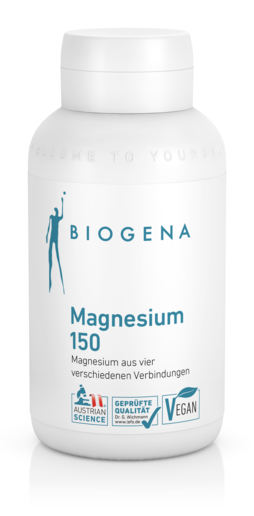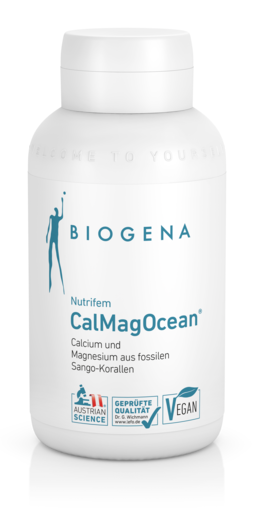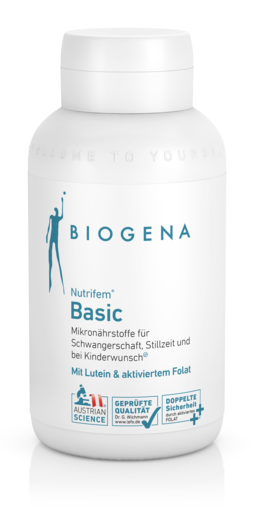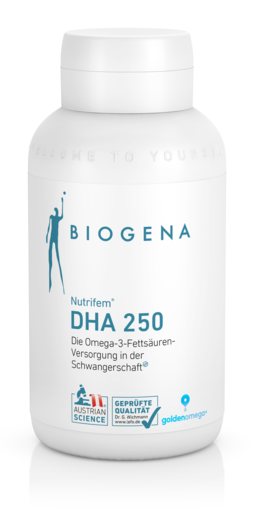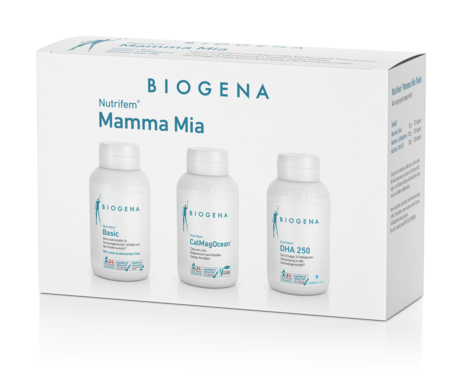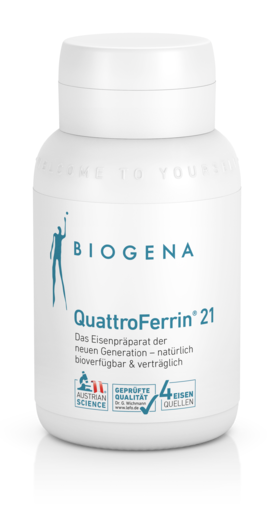Pregnancy and the desire to have children
What does the ideal diet look like to promote a potential pregnancy? How can the fetus be supplied with the most important nutrients from the outset? Can fertility be influenced?
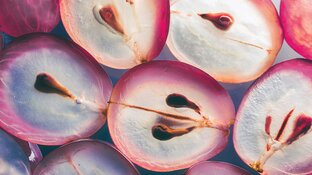


The miracle of life often starts out with a tiny wish. It grows and grows – until some point, we find ourselves holding it in our hands. A miracle. A life. Provided with everything a mother and child need. Even before the sperm fertilizes the egg, a healthy lifestyle, consisting of a lot of exercise and the right diet, can promote the path to the desired child.
From wishing to have children to your child
If you want to have a child, you should pay attention to a nutrient-rich diet. Particularly vitamin B – especially folic acid (also known as vitamin B9) – vitamin C, vitamin E, iron, zinc, and iodine should be consumed in sufficient quantities. Omega-3 fatty acids are important for the brain and the vision of the fetus. They are particularly important in the case of low fish consumption (note: fish should be present at least once or twice a week on every person's menu).
Your partner can also make a significant contribution on the route to the desired child. His diet influences sperm formation: The trace element zinc is the most essential element for this. It contributes to normal fertility and reproduction. Vitamins B12, C, and E can also help in assuring that the desired child is in your arms soon.
What foods contain these nutrients?
Vitamin B is mainly found in meat, fish, and eggs. Vegetarians and vegans in particular often have difficulty absorbing enough vitamin B and meeting their daily needs. Foods containing vitamin B are poultry, pork, and beef. Mackerel, salmon, and sardines are also valuable suppliers of vitamin B. If you prefer non-animal foods, you can also use vegetables and fruit. Potatoes, legumes, bananas, avocados, spinach, and broccoli are particularly recommended here.
Immune vitamin C can be found primarily in citrus fruits (oranges, lemons, and limes), rosehips, red peppers, sprouts, and kale. Acerola cherry is also a good source of vitamin C. It contains around 1,700 mg of vitamin C per 100 mg. In comparison, one orange contains 53 mg of vitamin C.
The essential omega-3 fatty acid docosahexaenoic acid (DHA) contributes to the maintenance of normal brain function and normal vision. Eicosapentaenoic acid (EPA) also plays an important role for mother and child. The healthy fatty acids are mainly contained in cold water fish. However, attention should be paid to the heavy metal load. Since fish varieties such as tuna, swordfish, perch, halibut, and pike may contain mercury, these should be avoided during pregnancy and breastfeeding. Herring, anchovies, and sardines are harmless and rich in valuable omega-3 fatty acids. Omega-3 fatty acids can also be found in rapeseed oil, hemp oil, walnut oil, or chia oil.
In addition to a nutrient-rich diet, adequate fluid intake is important. 1.5-2 liters of water, diluted juices, or unsweetened herbal teas daily are ideal.
During pregnancy
As soon as the child starts growing in the womb, the nutrient requirements of the expectant mother increase. After all, two people must be cared for now. Folic acid is considered one of the most important vitamins before and during pregnancy. Folate belongs to the group of water-soluble B vitamins. Folic acid is the term used when it is produced synthetically. Folate primarily supports the growth of maternal tissue during pregnancy. Folic acid also plays an important role in cell division. Approximately 600 μg folic acid is recommended daily for pregnant women. Ideally, folic acid is already being taken before conception to prepare the body for a possible pregnancy. Capsule preparations are available here, which should prepare the body for its new task. Chickpeas, leaf spinach, broccoli, salads (both green and endive lettuce) and lentils are rich in folate.
The female body also needs calcium for the development of teeth, muscles and bones. This mineral contributes to a normal energy metabolism and normal muscle function. The daily requirement for calcium in pregnant women is approx. 1,200 mg. Good calcium sources are dairy products such as milk, yoghurt, quark or even vegetables such as broccoli or kale.
The two trace elements iron and zinc are also significant during pregnancy. They support the immune system and contribute to the normal cognitive function of the foetus. The iron requirement in particular is increased during pregnancy, as it is used for the formation of red blood cells and haemoglobin, which the female body must create anew during this time. The daily requirement for pregnant women is around 18 mg. An adult usually needs between 10 and 15 mg daily. Wholemeal bread, meat, eggs and green vegetables are particularly rich in iron. Like iron, zinc supports the cognitive functions of the embryo and influences vision. The recommended 20 mg zinc per day can be provided by meat, poultry, shrimp, cheese or even nuts, oat flakes, sunflower seeds and linseed.
